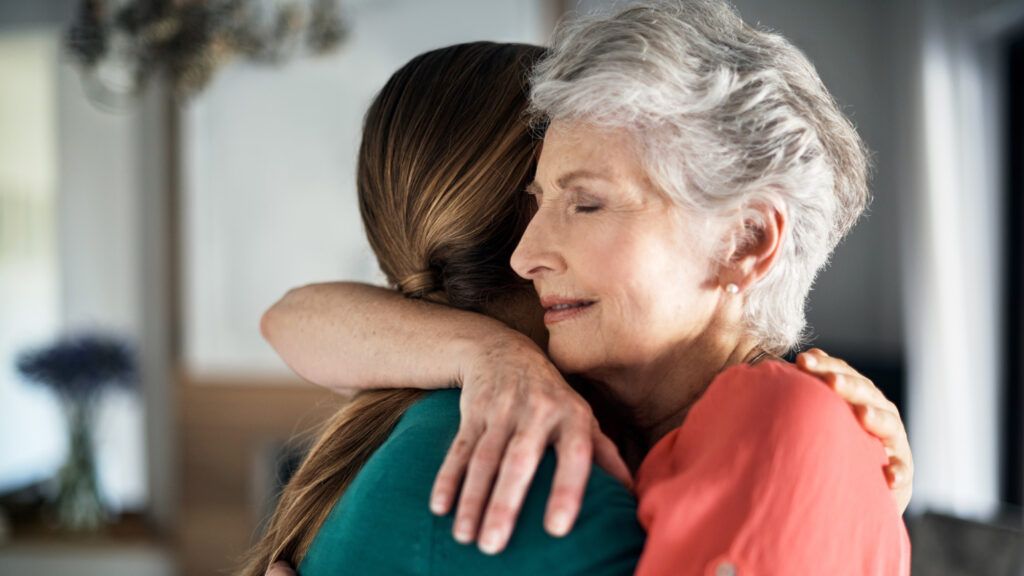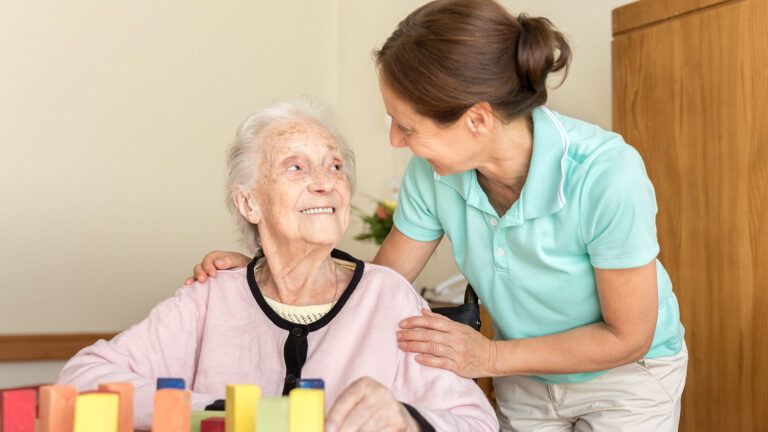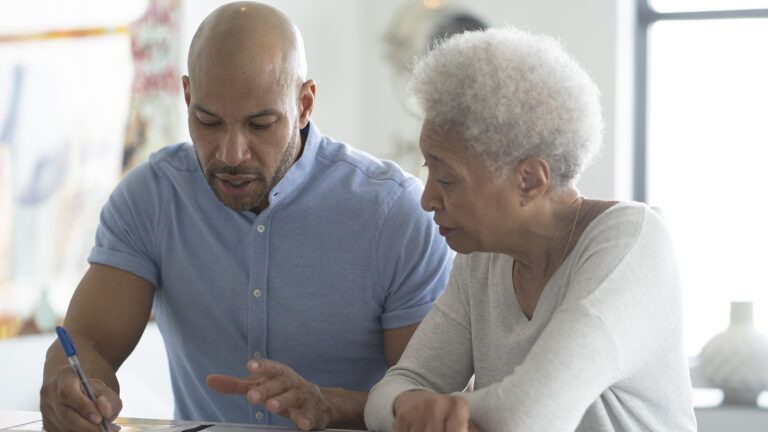Lauri Scharf, LSW, MSHS, is a Care Consultant & Master Trainer at Benjamin Rose Institute on Aging
The feelings that come with loss take various forms. Traditional grief follows the death of a loved one. It is the process of dealing with emotions that accompany permanent and meaningful loss. It is a familiar and difficult experience. By grieving, we may allow ourselves to move through the loss and come to terms with it.
We can also experience loss in relationships, as people move in and out of our lives, or as relationships themselves undergo shifts. When a close relationship is changed by a health issue that significantly alters a person’s mental or emotional condition, the feelings of loss that result for the caregiver can be particularly confusing and challenging to process. It is almost “a loss that isn’t” when your loved one is physically present but mentally or emotionally impaired, and it can leave you wondering who you are now.
You may have gradually experienced such a shift in your identity from loving spouse, companion or friend to full-time caregiver, sole decision-maker and lone partner due to your loved one’s cognitive decline or another condition. This can happen with dementia, Parkinson’s disease, traumatic brain injury or addiction. Whatever the cause, you may feel isolated and as if the clock has stopped ticking, for you alone. As a result, you may be grappling with the loss of dreams the two of you had for the future, or the loss of sharing equally in a mutual relationship. You may feel as if you have no one to rely on but yourself. But know that support is available and that there are helpful ways to process your emotions.
Although your new normal may now feel one-sided, it is important to allow your emotions and practice self-kindness. Acceptance is a gradual process. Your thoughts may turn to wanting change. If only I could go back to how it was five years, or even two years ago, you may think. By slowly accepting that this is not going to happen, your thinking may turn instead to, “Let my loved one have peace.” You may feel guilty for not being able to adapt to your new role, or question whether you are up to being the caregiver your loved one needs. All these thoughts and feelings are a normal and healthy part of the process.
‘Ambiguous grief’ or ‘ambiguous loss,’ a term coined by researcher Dr. Pauline Boss, is the name given to these thoughts and emotions. There is no closure to the situation or even an apparent understanding of why it has happened. It looks and feels different from traditional grief in that you have not experienced the physical loss of your loved one, yet the sense of loss is real. Well-meaning family and friends may not be able to recognize your grief, and thus don’t understand how to interact with you. On the other hand, others may try to relate to you and share their grief experience in losing a loved one to death. It may feel difficult to hear, but recognize they are only trying to help.
Remember that there is no one right way to maneuver through this experience. The following steps, however, may serve as a guide to help you process your emotions and move forward:
· Let yourself view this as a loss with no true resolution. Even though you may not be able to change the situation, you can begin the grieving process as you adjust to your new role.
· Think about your strengths as a caregiver. Consider which tasks you’re able to handle and which you could use back-up for. Then reach out for support from family, friends and community resources. Don’t be embarrassed if you need to ask for help. Care coaching programs like BRI Care Consultation™ can guide you through this new normal and help provide you with resources and steps to live a healthy life.
· Understand that your loved one is not the diagnosis or the disease. You could not control the circumstances that led to the disease, and you may not have control over how it progresses. Be kind to yourself.
· Form a care team. Put together the resources and care you need. These can include a support group to meet others who are undergoing similar challenges, or professional help from a therapist, clergy person or other expert who can help you recognize and cope with your feelings.
· Look for ways to reminisce on the wonderful times you had with your loved one. Instead of focusing on loss, it can make you feel better to put your attention on good memories.
· Prioritize regular respite, not only to give yourself a break, but also as a way to celebrate all that you do as a caregiver and to allow for some self-love.
Although the caregiving journey can involve painful feelings of loss, it can also be filled with joys, great and small. Let yourself embrace the gifts of laughter and love along the way and try to focus on the great times the two of you have shared.





